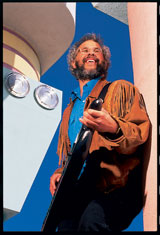By Steve Oppenheimer
(June 1999)
I firmly believe that people should take responsibility for their actions and decisions and should allow other people their right to do the same—and this includes making mistakes. You can advise someone; you can even preach. But ultimately, you must allow people to make choices and to accept the responsibility for making those choices.
Taking responsibility for one’s decisions also includes considering whether the decisions are morally sound. (Yes, I used the “m” word!) Of course, moral values vary greatly among cultures, and our complex, multicultural society fosters differing opinions about what is acceptable. I think we can agree, however, that theft is generally considered unacceptable behavior.
Yet thievery has become a common occurrence within the music industry. For example, the amount of pirated DSP plug-in software is so great that certain developers and distributors are reconsidering whether selling plug-ins is worthwhile. The same problem exists for other types of music software.
Some hackers even defend their piracy as striking a blow against big corporations. “We’re the Jesse Jameses of the ’90s,” they proclaim. Hooey! I hope these people remember that Jesse James was shot in the back of the head by a supposed friend. Sic semper banditos!
One musician I know uses samples from music CDs in his own music and never pays royalties. He says that he’ll worry about paying when he makes enough money from his music to risk getting sued by the record labels. I have heard a similar argument made for pirating commercial sample CDs: people say that they will pay once they make money using the samples. Following that logic, I can go steal a new computer and pay for it only if the cops are closing in, or when the computer helps me make more money—and only if I feel like it. I think not!
Similarly, the amount of music distributed illegally on the Web in MP3 format is amazing. That could be your music getting pirated. Yet some musicians are right there with the fans, taking what they want because they can.
For the most part, these pirates seem like average, reasonable folks. They could be members of your hand. Maybe they’re even you. We’re not talking about swashbuckling buccaneers or compulsive maniacs. My guess is that few of them shoplift and most would be outraged at being compared to common pickpockets and thieves. They won’t deal with the fact that in actuality they are thieves, and the products they steal are part of other people’s life work.
Although the pirates are undoubtedly a small minority, they are doing tremendous damage. Aside from the moral issues, piracy hurts us all because it forces manufacturers to raise prices. Manufacturers are having to respond with collective action in the form of organizations such as Copyright Control Services (www.copyrightcontrol.com). CCS is campaigning for legal action against software pirates who break copyright laws by distributing unlicensed software. The organization is also going after audio professionals who knowingly use pirated software.
But legal action addresses only part of the problem. Each of its should examine our own actions and make sure we do not let our appetites obscure our sense of right and wrong.
